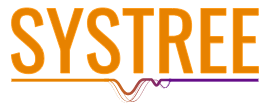
Maximize Your Sales Funnel: Essential CRM Tools For Small Business Success
Understanding Sales Funnels: The Journey to Conversion
Sales funnels serve as a crucial framework for guiding potential customers from initial awareness to eventual conversion. The journey begins with the awareness stage, where prospects discover your brand, followed by the interest stage, where they engage with content. Next comes the consideration stage, where leads evaluate their options, culminating in the decision stage, leading to conversion. Understanding each stage allows businesses to tailor their strategies effectively, minimizing pitfalls and enhancing customer satisfaction. Properly navigating these stages can significantly influence lead generation and increase overall conversion rates. For deeper insights on optimizing your processes, explore our article on streamlining success with sales funnels.
Key CRM Features to Boost Your Sales Funnel Efficiency
Key CRM features enhance sales funnel efficiency by streamlining processes for maximum productivity. The following features are essential:
- Lead Management: Efficiently capture, prioritize, and nurture leads to ensure no opportunities are overlooked.
- Customer Interaction Tracking: Maintain detailed records of all customer interactions, allowing for informed decision-making and personalized follow-ups.
- Automation: Automate repetitive tasks, enabling sales teams to focus on strategic activities that directly contribute to revenue growth.
- Reporting & Analytics: Gain insights into sales performance through reporting tools that identify trends, helping refine your sales strategies for better outcomes.
For a deeper dive into effective CRM strategies, check out our article on boosting CRM efficiency.
Top CRM Tools for Small Businesses: A Comparative Analysis
When selecting a CRM tool, small businesses should consider functionality, pricing, and scalability. Below is a comparative overview of popular CRM tools suitable for various business needs:
- HubSpot CRM: Offers a free version with essential features. Paid tiers enhance automation and analytics, making it ideal for growing businesses. Customization options cater to diverse industries.
- Zoho CRM: Known for its affordability, Zoho provides robust features like sales automation, analytics, and multichannel support. Its flexible pricing plans suit small to medium businesses.
- Salesforce Essentials: Tailored for small businesses, it delivers extensive features and integrations. While it comes at a higher price point, its scalability makes it a strong choice for businesses anticipating growth.
- Freshsales: Excellent for businesses focusing on lead management and customer engagement. Its user-friendly interface and AI features significantly enhance customer interactions.
- Pipedrive: A sales-focused CRM that allows easy pipeline management. Its straightforward pricing structure appeals to small businesses looking for simplicity and effectiveness.
For further insights on how these tools can enhance your marketing strategy, check out our article on essential CRM strategies for small businesses.
Integrating CRM with Your Existing Sales Strategies
Integrating CRM into your existing sales strategies involves aligning CRM functionalities with your sales objectives. Start by training your sales team on how to utilize CRM features effectively to enhance customer engagement. Use analytics to gain insights into customer behavior and preferences, allowing for more targeted marketing efforts. Automate repetitive tasks such as lead follow-ups and data entry to boost productivity. Implement marketing automation tools to create personalized interactions, driving sales growth and improving overall efficiency. For additional insights on leveraging automation, explore our post on essential sales funnels and automation strategies.
Measuring Success: KPIs to Track Your Sales Funnel Performance
To effectively measure the success of your sales funnel, track key performance indicators (KPIs) such as conversion rates, drop-off rates, lead sources, and customer acquisition cost (CAC). Conversion rates indicate how well leads progress through each stage, while drop-off rates highlight areas needing improvement. Analyzing lead sources helps determine which channels are most effective, and monitoring CAC ensures that investments align with your revenue goals. For deeper insights, explore our article on streamlining your sales funnels.
Conclusion
In summary, understanding sales funnels, employing key CRM features, selecting the right tools, integrating CRM into sales strategies, and measuring performance through KPIs are crucial steps for businesses aiming to enhance their customer engagement and conversion rates. By leveraging these strategies, organizations can unlock their full potential. If you’re interested in maximizing your business's growth and efficiency through innovation, SYSTREE can help you implement these changes effectively.

